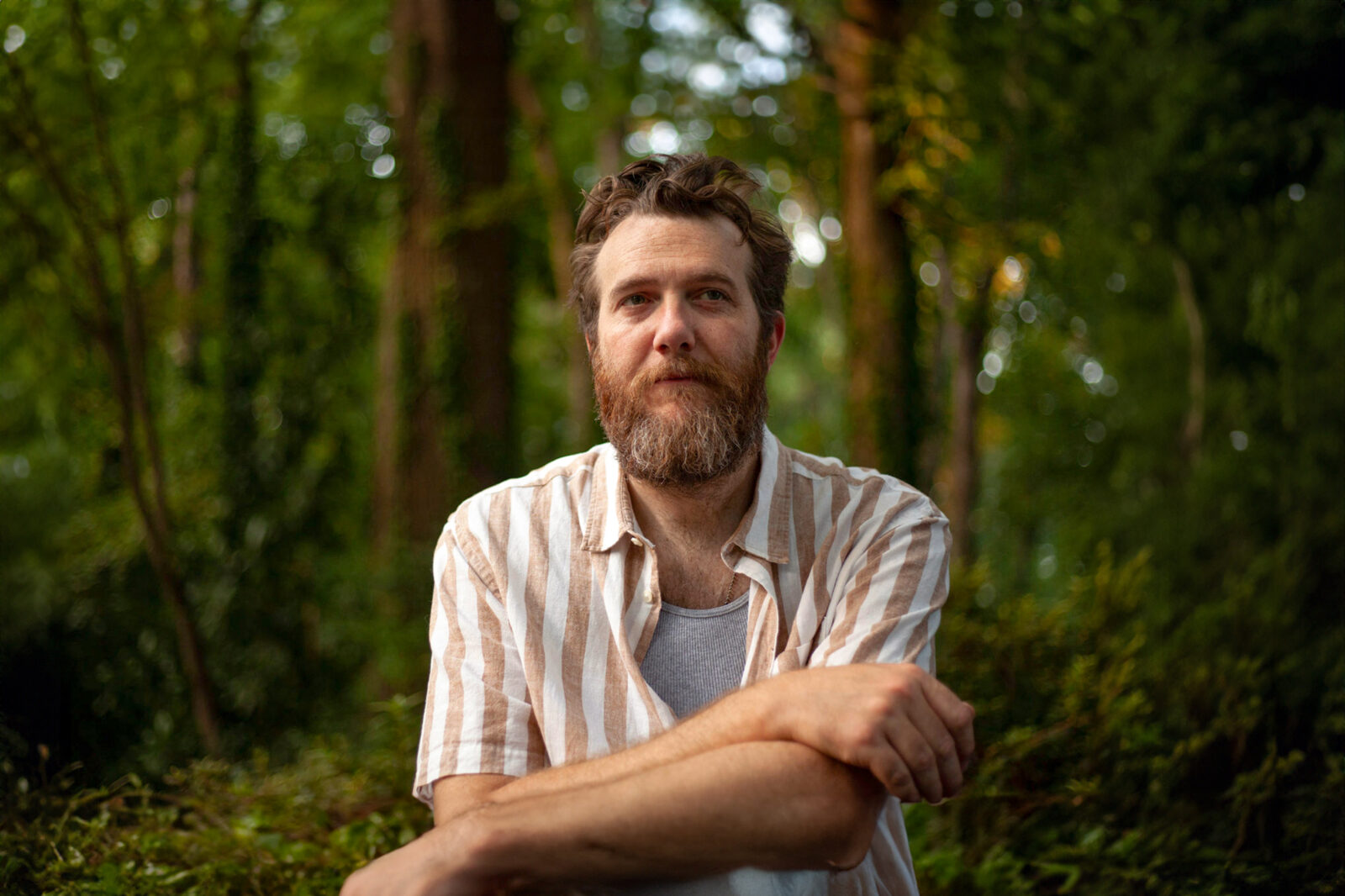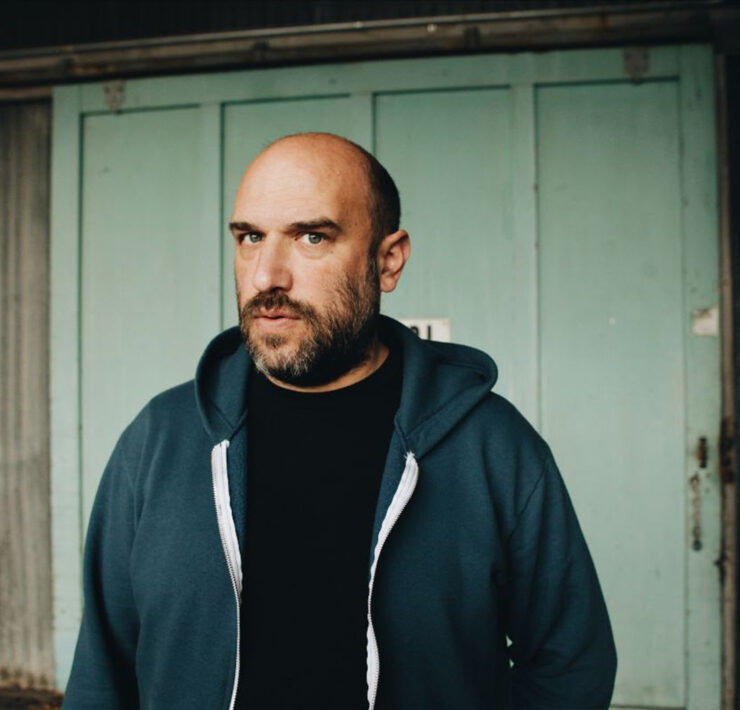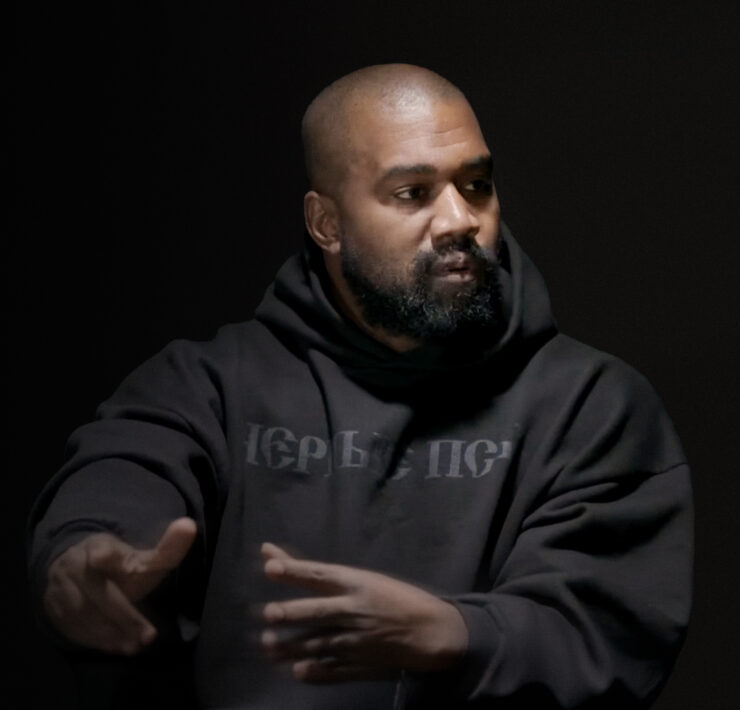It’s easy to get your head stuck in the clouds these days.
With constant distractions from people in our lives and never-ending social media algorithms, finding time and space to sit quietly, think, and ponder about life can be few and far between. But there are a lot of possibilities in life that can go unexplored if we don’t allow ourselves the opportunity to dream.
That’s why John Mark McMillan believes it’s important to dream. The Christian singer-songwriter describes himself as a “lifelong dreamer” and someone who benefits from letting his head drift high into the clouds on occasion. But he doesn’t just let his dreams stay hidden in his mind, and he doesn’t want you to, either.
“I’m a big dreamer,” McMillan said, “but we need to be careful because sometimes the best things are the things that are happening in normal life. There’s a lot of magic and love and God right there in the everyday. We’re just sometimes too blind to it because we’re overfamiliar or we’re too ambitious for the next thing.”
We spoke with McMillan about how he keeps his dreams alive while also staying in the presence of the present. He shared that taking practical steps towards your big dreams is the key to walking in the life you want to live.
This conversation has been edited for length and clarity.
RELEVANT: Yeah, yeah, I mean, I think that is so true. I think so many of us focus on like what’s next and the future and the big dreams, but we really do miss out on so much of the present. So, you know, I’d love to hear like, how do you stay mindful in like your current situation or whatever you’re in? Like, what do you do to kind of make sure that you’re not just always looking to the future, but also recognizing what’s around you?
I think we tend to be very busy. I’m very, very busy. I have to force myself to stop. And I’ve come to realize that rest is actually a different type of work. Just stopping isn’t easy if you don’t plan for it and prepare for it. At least in my stage of life, we have three kids and, you know, we’re involved in music, business, church and our marriage. So there’s a lot going on, and I’ve realized that I actually have to plan to stop.
I had been working really hard since COVID, putting out singles every six weeks. Then we took a break, and I finished up the other singles. And I realized that I felt like I was running out of things to say. I was like, “God, why am I running out of things to say?” And I realized it’s because I haven’t spent a whole lot of time for lack of a better term, listening. I’ve been talking a lot. I’ve been connected to the internet, and I actually enjoy it. I enjoy social media to a point — I’m not an ultimate hater of social media. I think it can be evil at times, and there are things I’d like to change about it. I think the quality of everything has gone way down because of the algorithms. You know, they all turn everything into something else.
But I realized that everything I’m consuming is driving the conversation in my mind. And I think it’s time for me to stop and to curate that a little better, to decide what books I want to read and what things I want to give my mind to so that me and Jesus are “driving the thought bus,” you know, and not whatever media group is trying to sell me or get me involved in or get me angry about.
You said that you’re a dreamer. Do you feel like you’ve always been that way?
I’ve been a dreamer my whole life. I’ve had a very active imagination as long as I can remember.
I think at a point I realized, oh, I can imagine the future, and then maybe I can make some actions in that direction. I never thought I was going to be a singer or a songwriter. I just sort of imagined that I could, and I saw friends doing it. Then I started moving in that direction, and I woke up one day and realized I’ve been doing this for a decade. This is fantastic. But yeah, I’ve always kind of been a dreamer.
As a life-long dreamer, do you have any advice for someone who wants to be a bigger dreamer?
Yes, I think the number one thing is that people need to realize that it’s okay to dream. It can be painful for some people to dream because everyone suffers a little bit, and some of us suffer a lot. Life is hard for everyone, and harder for some than for others. So some people are afraid to dream because they’re afraid that if it doesn’t happen, they’re going to be sad and disappointed.
But I tend to think that even if the dream doesn’t work out, it’s sort of like a carrot on a stick. The dream oftentimes lands you in a better place than you would be if you had never dreamed. It’s not that the dream is ever going to be what you think. Sometimes it’s way better than you think, and sometimes it’s not quite what you think it’s going to be.
So I think just allowing yourself to dream is the first step. The simplest way to dream is to think about the world and ask yourself what you would like, even if it’s something small. We’d all like to see the end of war and poverty and hunger, and those are great things to dream about, but I think you need to break it down a little bit and dream about smaller things first. For example, if that is your dream, ask yourself how you can help one person, two people or 10 people. You can look at the world and think, “What would it be like if…” and then fill in the blank. What is the first thing that comes to your mind? And then the second thing would be like, “Well, what could I do?” What actions could you take in your daily life to maybe see that thing become possible? And then you’re dreaming.
A lot of dreams start by just asking yourself about the world. It comes naturally for some people, and maybe not for others, but it’s easy. For example, my wife is always doing something. Sometimes I’ll sit down in the living room and not do anything, and she’s like, “How can you just sit there?” I’m like, “Well, I’m thinking.” What I’m actually doing is running ideas through my brain. It becomes almost like writing fiction, except there’s the possibility it could be true.
For instance, we did a Ukrainian benefit concert last year. We raised about $17,000 for our friends who are working with Ukrainian refugees. It didn’t exist before. I just saw a picture of Polish mothers leaving strollers for Ukrainian mothers. When I see stuff like that, it doesn’t just imprint on me, it immediately sends my brain into “How can I be a part of that story?” mode. Immediately I was like, “Well, I make music, so maybe I could do a concert.”
I knew we needed to do it in two weeks, and so I just started to think of what it would take to do that. I started to make lists. I started to dream up what it would look like. It’d be great if I had some actual Ukrainians there performing, and I just dreamed: What would the perfect night look like? Obviously, the purpose is to raise money, but it’s also more than that. It’s to celebrate Ukrainian culture a little bit. It’s to give people an opportunity to help people in need. So I dreamed up what it would be like. I found some Ukrainian musicians who came and opened up the night, and I had several local songwriters come play. It sounds like a small dream, right? It’s not like a huge dream, but it all came because I saw a picture and I let myself imagine how I could be a part of that story.
To me, that’s what dreaming is all about. We’re storytelling creatures. We interact with reality through the stories that we tell ourselves. So maybe dreaming is just the practice of telling ourselves stories about our future.
You can hear more of our conversation with McMillan on The RELEVANT Podcast.























